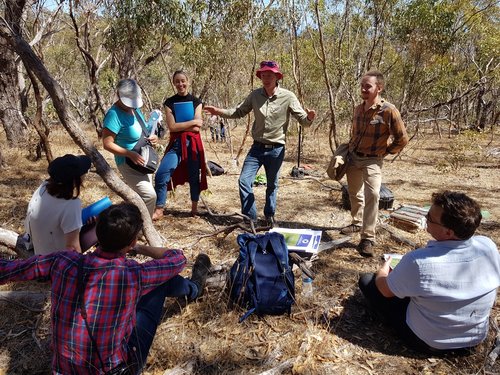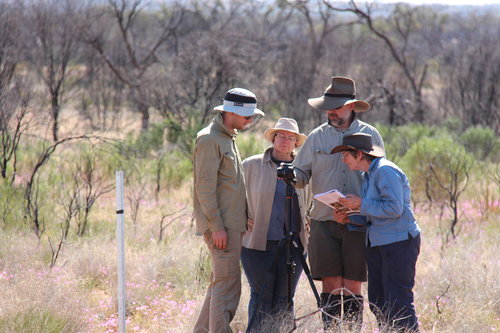SA Riverland, 28th April – 5th May 2019
The TERN Surveillance Field Method Training provides hands-on experience to scientifically standardised, nationally accepted ecological monitoring methods and techniques.
The Waite-based TERN team are currently accepting applications for the next scheduled training program, which will be run at Calperum Station, in the South Australian Riverland. Participants will need to arrive on Sunday 28th April (either at the venue in near Renmark directly, or meet the team in Adelaide at 2 pm to travel with the team).
The training is suitable for undergraduates, postgraduates, seasoned researchers wanting to fully understand our data and sample collection methods, as well as people with in interest in ecological monitoring.
The training will aim to:
- introduce participants to TERN, and specifically TERN ecological surveillance monitoring
- provide practical hands-on experience to the protocols, methods and techniques, including all vegetation and soils modules, photopoints, and establishing the plot set-up, as well as key aspects of fauna monitoring methods
- enable participants to practice what they learn and refine techniques under the supervision of experienced field ecologists
At the conclusion of the training, participants will:
- have a detailed understanding of the AusPlots Protocols methods and techniques
- be able to apply the methods and techniques learnt to other ecological field monitoring
- understand how the TERN Surveillance dataset has been collected, it’s strengths and limitations for using the data in their own research.
The course covers all aspects of the vegetation and soil modules, and key vertebrate fauna modules, of the TERN Surveillance protocols, and how these specific methods and techniques can be applied to a range of applications, as well as identifying the data and samples available for use.
The specific field methods and techniques cover everything from field trip planning, plot selection (both at the wider landscape scale, and micro-siting the plot in the targeted vegetation community), and all the specific techniques. This includes: plot layout and positioning using DGPS (or equivalent for high accuracy), photopoints, vascular plant vouchering, genetics and isotope sample vouchering, point intercept transects, basal area calculations, leaf area index, soil pit descriptions including soil characterisations and bulk density sampling, soil metagenomic sampling, plot disturbance, landform and vegetation community descriptions, as well as select components of the vertebrate fauna protocols.
In addition to the specific TERN protocols, participants will learn about identifying monitoring needs for effective monitoring design, sample collection, sample handling and field curation, data collection using various techniques including custom-built apps, datasheets, and voice recording, and basic field analysis.
University of Adelaide higher degree students may record 40 hours of Career and Research Skills Training (CaRST) (Domain A: Knowledge and intellectual abilities).




